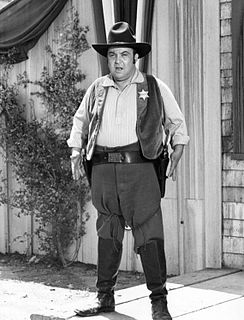A Quote by Antony Flew
If it is to be established that there is a God, then we have to have good grounds for believing that this is indeed so. Until and unless some such grounds are produced we have literally no reason at all for believing; and in that situation the only reasonable posture must be that of either the negative atheist or the agnostic. So the onus of proof has to rest on the proposition of theism.
Related Quotes
The starting-point and chief principle of every science, and hence of theology also, is not only methodical doubt, but positive doubt. One can believe only what one has perceived to be true from reasonable grounds, and consequently one must have the courage to continue doubting until one has found reliable grounds to satisfy the reason.
An atheist, like a Christian, holds that we can know whether or not there is a God. The Christian holds that we can know there is a God; the atheist, that we can know there is not. The Agnostic suspends judgment, saying that there are not sufficient grounds either for affirmation or for denial. At the same time, an Agnostic may hold that the existence of God, though not impossible, is very improbable; he may even hold it so improbable that it is not worth considering in practice. In that case, he is not far removed from atheism.
I don't know if God would agree with me, but believing in God is kind of unimportant when compared to believing in yourself. Because if you go with the idea that God gave you a mind and an ability to judge things, then he would want you to believe in yourself and not worry about believing in him. By believing in yourself you will come to the conclusion that will point to something.
I don't hold with paddlin' with the occult," said Granny firmly. "Once you start paddlin' with the occult you start believing in spirits, and when you start believing in spirits you start believing in demons, and then before you know where you are you're believing in gods. And then you're in trouble." "But all them things exist," said Nanny Ogg. "That's no call to go around believing in them. It only encourages 'em.
We cannot ultimately specify the grounds (either metaphysical or logical or empirical) upon which we hold that our knowledge is true. Being committed to such grounds, dwelling in them, we are projecting ourselves to what we believe to be true from or through these grounds. We cannot therefore see what they are. We cannot look at them because we are looking with them.
Theism, as a way of conceiving God, has become demonstrably inadequate, and the God of theism not only is dying but is probably not revivable. If the religion of the future depends on keeping alive the definitions of theism, then the human phenomenon that we call religion will have come to an end. If Christianity depends on a theistic definition of God, then we must face the fact that we are watching this noble religious system enter the rigor mortis of its own death throes.
On scientific grounds this big bang assumption is much less the palatable of the two. For it is an irrational process that cannot be described in scientific terms. . . . On philosophical grounds too I cannot see any good reason for preferring the big bang idea. Indeed it seems to me in the philosophical sense to be a distinctly unsatisfactory notion, since it puts the basic assumption out of sight where it can never be challenged by a direct appeal to observation.
I am an atheist. There, I said it. Are you happy, all you atheists out there who have remonstrated with me for adopting the agnostic moniker? If "atheist" means someone who does not believe in God, then an atheist is what I am. But I detest all such labels. Call me what you like - humanist, secular humanist, agnostic, nonbeliever, nontheist, freethinker, heretic, or even bright. I prefer skeptic.








































